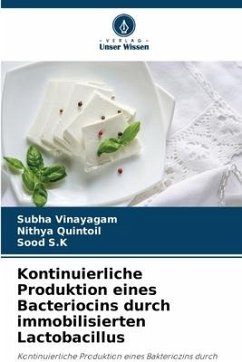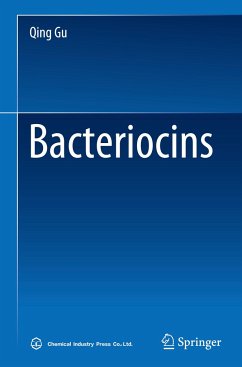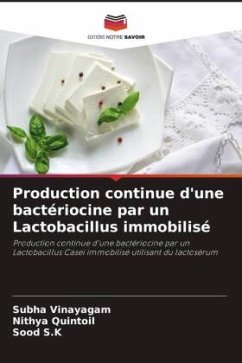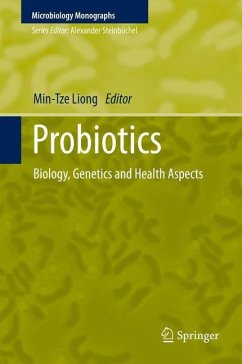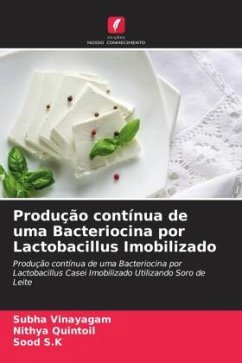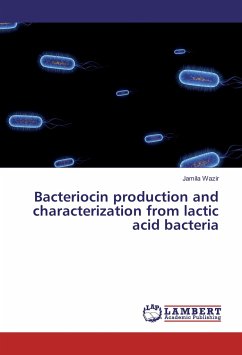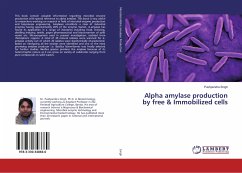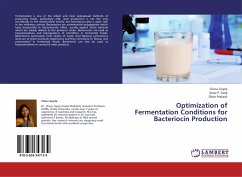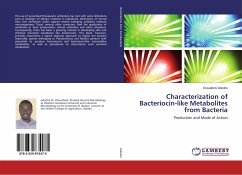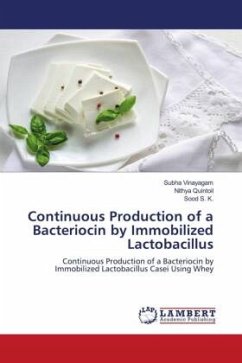
Continuous Production of a Bacteriocin by Immobilized Lactobacillus
Continuous Production of a Bacteriocin by Immobilized Lactobacillus Casei Using Whey
Versandkostenfrei!
Versandfertig in 6-10 Tagen
29,99 €
inkl. MwSt.

PAYBACK Punkte
15 °P sammeln!
Food safety programmes are increasingly focusing on a farm-to-table approach including preservation of foods as an effective means of reducing foodborne hazards. Now-a-days consumers are concerned about the synthetic chemicals used as preservatives in foods, and there is resulting trend towards less processed food. A solution to this dilemma may be the use of natural antimicrobial metabolites of fermentative microorganisms. Since long, Lactic Acid Bacteria (LAB) have been used for production of fermented foods, primarily for the preservation of highly perishable foods of plant and animal origi...
Food safety programmes are increasingly focusing on a farm-to-table approach including preservation of foods as an effective means of reducing foodborne hazards. Now-a-days consumers are concerned about the synthetic chemicals used as preservatives in foods, and there is resulting trend towards less processed food. A solution to this dilemma may be the use of natural antimicrobial metabolites of fermentative microorganisms. Since long, Lactic Acid Bacteria (LAB) have been used for production of fermented foods, primarily for the preservation of highly perishable foods of plant and animal origin. In gastrointestinal tract, a number of highly specialized Lactobacillus species (Acidophilus, Gasseri, Reuteri and Casei) are said to have beneficial effects. These effects include the suppression of undesirable and pathogenic microorganisms both by competitive exclusion and via production of antimicrobial substances. Bacteriocins from LAB are proteins (proteinaceous complexes), which exhibit a bactericidal effect against sensitive bacteria. There has been a resurgence of interest for research on bacteriocins from LAB in the last decade for application as natural biopreservatives.



